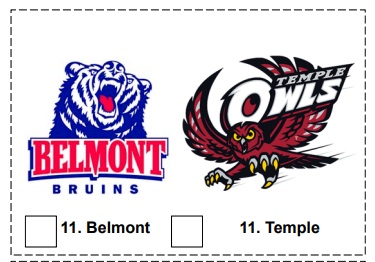Resilience, or the ability to bounce back from adversity, is a key to success in school and life. Because everyone is likely to experience significant adversity at some point in life, we can all benefit from “building our bounce.” In the coming months, this blog will focus on simple, practical tools and techniques that parents can use to promote the resilience of their children and themselves.
A common characteristic of resilient individuals is the ability to set and achieve meaningful goals. Because the first month of the year is a time when we traditionally set goals for ourselves by making New Year’s resolutions, it seems appropriate to begin with some suggestions on how to help children set and achieve goals. While this may seem simple enough, too often we adults have a difficult time following through on our resolutions, due in large part because our goals were poorly defined at the start.
In the healthcare world, staff are often trained to set SMART goals for their patients’ care and rehabilitation. This approach to goal-setting works equally well for personal goals. SMART is, of course, an acronym that captures some of the key aspects of good goal-setting. We are more likely to achieve our goals if they are:
- Specific: Rather than a vague and general statement such as “This year I will be healthier,” a good goal identifies exactly what behavior our children intend to engage in, such as “This year I will eat more fruits and vegetables."
- Measurable: We need specific criteria to let us know when we have met our goal, such as “two servings of fruit and three servings of vegetables every day for a month.” There should never be ambiguity about whether a goal has been met. Once we establish how we are going to measure our progress in reaching our goal, we need to actually measure and track our progress. A simple chart or graph can help children see the results of their hard work.
- Attainable: Too often we set goals that are too hard to meet. A good goal should be challenging but within reason. We should help our children pick goals that are achievable so they do not become discouraged.
- Relevant: If our children are going to go through the effort of carefully writing good goals and tracking their progress, we should help them make sure that their goals are meaningful and important in the first place.
- Time-limited: To ensure that setting and achieving goals becomes an enjoyable experience for our children, we should make sure that they are time-limited. Short time periods such as a week or a month work well. It is critical that we recognize and reward our children for achieving their goals. Experiences with success will increase their confidence and self-esteem, which will make them more likely to continue to set important goals for themselves.
Learning to set and achieve SMART goals is a simple and meaningful skill that we can teach our children that will serve them well for the rest of their lives.
 Paul LeBuffe is the Director of the Devereux Center for Resilient Children in Villanova, PA, whose mission is promoting the resilience of all children and the adults who care for them; he will be contributing to this blog on a monthly basis. More information on promoting resilience can be found at the center’s website.
Paul LeBuffe is the Director of the Devereux Center for Resilient Children in Villanova, PA, whose mission is promoting the resilience of all children and the adults who care for them; he will be contributing to this blog on a monthly basis. More information on promoting resilience can be found at the center’s website.






